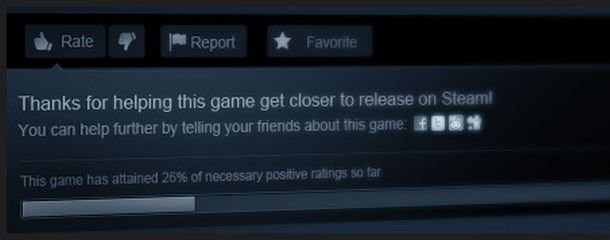
Steam Greenlight is a feature that'll change how games get submitted to the platform. As Tom mentioned in his Greenlight story a few days ago, the power to get a game on to Steam is shifting from Valve to you - the customers. It's a massive step for indie developers with a desire to get their title on Valve's digital distribution service. Some indie gems have been overlooked by Valve in the past. Greenlight should stop that happening in the future.
I got to speak to Valve's director of business management, Jason Holtman, at the Develop conference in Brighton a few days ago. I asked him if there was a risk that the cream of the crop won't rise to the top. He's not worried.
"That's interesting, I think that having seen what pops out and what customers like, the opposite might happen," he reassured.
"I think people are smarter than we think they are. It's easy to think of crowdsourcing as going to a mean. If I'm crowd sourcing, all I'm doing is finding the highest votes and finding the most things and piling things up until they weigh everything else down. I don't think that's the function here.
"Customers are super smart, they're not all going to vote for the top thing all the time or just be interested in the top thing. What'll happen is that groups of customers will rally around smaller interesting things."

"That developer who had no support before because they couldn't get to those 500 interested people? Now they can start having a conversation. And those 500 have a forum to talk to other people and start getting them convinced," says Jason.
Holtman points out that Greenlight won't just be concerned with numbers: "It's not just a vote. I think this is what's important. If it was just a vote, it's not interesting because all that's happening is "who's the top and I'll rank everything else and I don't see the bottom." This is meant to be something where smaller things - even if they don't get the most votes - can be identified."
Keep up to date with the most important stories and the best deals, as picked by the PC Gamer team.
"If the developer is like: “I have a great game and boy it's awesome that I have these 25 passionate fans about it," that might be the feedback that the developer wants. That's enough.
"But they also might look at it and be like “Why don't I have a 1000? Then they start thinking about that. They might not decide to solve that, but it's good data to have."

